- Home
- Roald Dahl
Deception Page 2
Deception Read online
Page 2
I thought this was an unnecessary remark. ‘I’m so sorry,’ I said to the guests as we shook hands. ‘I was busy and forgot the time.’
‘We all know what you’ve been doing,’ the girl said, smiling wisely. ‘But we’ll forgive him, won’t we, dearest?’
‘I think we should,’ the husband answered.
I had a frightful, fantastic vision of my wife telling them, amidst roars of laughter, precisely what I had been doing upstairs. She couldn’t – she couldn’t have done that! I looked round at her and she too was smiling as she measured out the gin.
‘I’m sorry we disturbed you,’ the girl said.
I decided that if this was going to be a joke then I’d better join in quickly, so I forced myself to smile with her.
‘You must let us see it,’ the girl continued.
‘See what?’
‘Your collection. Your wife says that they are absolutely beautiful.’
I lowered myself slowly into a chair and relaxed. It was ridiculous to be so nervous and jumpy. ‘Are you interested in butterflies?’ I asked her.
‘I’d love to see yours, Mr Beauchamp.’
The Martinis were distributed and we settled down to a couple of hours of talk and drink before dinner. It was from then on that I began to form the impression that our guests were a charming couple. My wife, coming from a titled family, is apt to be conscious of her class and breeding, and is often hasty in her judgement of strangers who are friendly towards her – particularly tall men. She is frequently right, but in this case I felt that she might be making a mistake. As a rule, I myself do not like tall men either; they are apt to be supercilious and omniscient. But Henry Snape – my wife had whispered his name – struck me as being an amiable simple young man with good manners whose main preoccupation, very properly, was Mrs Snape. He was handsome in a long-faced, horsy sort of way, with dark-brown eyes that seemed to be gentle and sympathetic. I envied him his fine mop of black hair, and caught myself wondering what lotion he used to keep it looking so healthy. He did tell us one or two jokes, but they were on a high level and no one could have objected.
‘At school,’ he said, ‘they used to call me Scervix. Do you know why?’
‘I haven’t the least idea,’ my wife answered.
‘Because cervix is Latin for nape.’
This was rather deep and it took me a while to work out.
‘What school was that, Mr Snape?’ my wife asked.
‘Eton,’ he said, and my wife gave a quick little nod of approval. Now she will talk to him, I thought, so I turned my attention to the other one, Sally Snape. She was an attractive girl with a bosom. Had I met her fifteen years earlier I might well have got myself into some sort of trouble. As it was, I had a pleasant enough time telling her all about my beautiful butterflies. I was observing her closely as I talked, and after a while I began to get the impression that she was not, in fact, quite so merry and smiling a girl as I had been led to believe at first. She seemed to be coiled in herself, as though with a secret she was jealously guarding. The deep-blue eyes moved too quickly about the room, never settling or resting on one thing for more than a moment; and over all her face, though so faint that they might not even have been there, those small downward lines of sorrow.
‘I’m so looking forward to our game of bridge,’ I said, finally changing the subject.
‘Us too,’ she answered. ‘You know, we play almost every night, we love it so.’
‘You are extremely expert, both of you. How did you get to be so good?’
‘It’s practice,’ she said. ‘That’s all. Practice, practice, practice.’
‘Have you played in any championships?’
‘Not yet, but Henry wants very much for us to do that. It’s hard work, you know, to reach that standard. Terribly hard work.’ Was there not here, I wondered, a hint of resignation in her voice? Yes, that was probably it; he was pushing her too hard, making her take it too seriously, and the poor girl was tired of it all.
At eight o’clock, without changing, we moved in to dinner. The meal went well, with Henry Snape telling us some very droll stories. He also praised my Richebourg ’34 in a most knowledgeable fashion, which pleased me greatly. By the time coffee came, I realized that I had grown to like these two youngsters immensely, and as a result I began to feel uncomfortable about this microphone business. It would have been all right if they had been horrid people, but to play this trick on two such charming young persons as these filled me with a strong sense of guilt. Don’t misunderstand me. I was not getting cold feet. It didn’t seem necessary to stop the operation. But I refused to relish the prospect openly as my wife seemed now to be doing, with covert smiles and winks and secret little noddings of the head.
Around nine thirty, feeling comfortable and well fed, we returned to the large living-room to start our bridge. We were playing for a fair stake – ten shillings a hundred – so we decided not to split families, and I partnered my wife the whole time. We all four of us took the game seriously, which is the only way to take it, and we played silently, intently, hardly speaking at all except to bid. It was not the money we played for. Heaven knows, my wife had enough of that, and so apparently did the Snapes. But among experts it is almost traditional that they play for a reasonable stake.
That night the cards were evenly divided, but for once my wife played badly, so we got the worst of it. I could see that she wasn’t concentrating fully, and as we came along towards midnight she began not even to care. She kept glancing up at me with those large grey eyes of hers, the eyebrows raised, the nostrils curiously open, a little gloating smile around the corner of her mouth.
Our opponents played a fine game. Their bidding was masterly, and all through the evening they made only one mistake. That was when the girl badly overestimated her partner’s hand and bid six spades. I doubled and they went three down, vulnerable, which cost them eight hundred points. It was just a momentary lapse, but I remember that Sally Snape was very put out by it, even though her husband forgave her at once, kissing her hand across the table and telling her not to worry.
Around twelve thirty my wife announced that she wanted to go to bed.
‘Just one more rubber?’ Henry Snape said.
‘No, Mr Snape. I’m tired tonight. Arthur’s tired, too. I can see it. Let’s all go to bed.’
She herded us out of the room and we went upstairs, the four of us together. On the way up, there was the usual talk about breakfast and what they wanted and how they were to call the maid. ‘I think you’ll like your room,’ my wife said. ‘It has a view right across the valley, and the sun comes to you in the morning around ten o’clock.’
We were in the passage now, standing outside our own bedroom door, and I could see the wire I had put down that afternoon and how it ran along the top of the skirting down to their room. Although it was nearly the same colour as the paint, it looked very conspicuous to me. ‘Sleep well,’ my wife said. ‘Sleep well, Mrs Snape. Good night, Mr Snape.’ I followed her into our room and shut the door.
‘Quick!’ she cried. ‘Turn it on!’ My wife was always like that, frightened that she was going to miss something. She had a reputation, when she went hunting – I never go myself – of always being right up with the hounds whatever the cost to herself or her horse for fear that she might miss a kill. I could see she had no intention of missing this one.
The little radio warmed up just in time to catch the noise of their door opening and closing again.
‘There!’ my wife said. ‘They’ve gone in.’ She was standing in the centre of the room in her blue dress, her hands clasped before her, her head craned forward, intently listening, and the whole of the big white face seemed somehow to have gathered itself together, tight like a wineskin.
Almost at once the voice of Henry Snape came out of the radio, strong and clear. ‘You’re just a goddam little fool,’ he was saying, and this voice was so different from the one I remembered, so harsh and unpleasant, it ma
de me jump. ‘The whole bloody evening wasted! Eight hundred points – that’s eight pounds between us!’
‘I got mixed up,’ the girl answered. ‘I won’t do it again, I promise.’
‘What’s this!’ my wife said. ‘What’s going on?’ Her mouth was wide open now, the eyebrows stretched up high, and she came quickly over to the radio and leaned forward, ear to the speaker. I must say I felt rather excited myself.
‘I promise, I promise I won’t do it again,’ the girl was saying.
‘We’re not taking any chances,’ the man answered grimly. ‘We’re going to have another practice right now.’
‘Oh no, please! I couldn’t stand it!’
‘Look,’ the man said, ‘all the way out here to take money off this rich bitch and you have to go and mess it up.’
My wife’s turn to jump.
‘The second time this week,’ he went on.
‘I promise I won’t do it again.’
‘Sit down. I’ll sing them out and you answer.’
‘No, Henry, please! Not all five hundred of them. It’ll take three hours.’
‘All right, then. We’ll leave out the finger positions. I think you’re sure of those. We’ll just do the basic bids showing honour tricks.’
‘Oh Henry, must we? I’m so tired.’
‘It’s absolutely essential you get them perfect,’ he said. ‘We have a game every day next week, you know that. And we’ve got to eat.’
‘What is this?’ my wife whispered. ‘What on earth is it?’
‘Shhh!’ I said. ‘Listen!’
‘All right,’ the man’s voice was saying. ‘Now we’ll start from the beginning. Ready?’
‘Oh Henry, please!’ She sounded very near to tears.
‘Come on, Sally. Pull yourself together.’
Then, in a quite different voice, the one we had been used to hearing in the living-room, Henry Snape said, ‘One club.’ I noticed that there was a curious lilting emphasis on the word ‘one’, the first part of the word drawn out long.
‘Ace queen of clubs,’ the girl replied wearily. ‘King jack of spades. No hearts, and ace jack of diamonds.’
‘And how many cards to each suit? Watch my finger positions carefully.’
‘You said we could miss those.’
‘Well – if you’re quite sure you know them?’
‘Yes, I know them.’
A pause, then ‘A club.’
‘King jack of clubs,’ the girl recited. ‘Ace of spades. Queen jack of hearts, and ace queen of diamonds.’
Another pause, then ‘I’ll say one club.’
‘Ace king of clubs …’
‘My heavens alive!’ I cried. ‘It’s a bidding code! They show every card in the hand!’
‘Arthur, it couldn’t be!’
‘It’s like those men who go into the audience and borrow something from you and there’s a girl blindfolded on the stage and from the way he phrases the question she can tell him exactly what it is – even a railway ticket, and what station it’s from.’
‘It’s impossible!’
‘Not at all. But it’s tremendous hard work to learn. Listen to them.’
‘I’ll go one heart,’ the man’s voice was saying.
‘King queen ten of hearts. Ace jack of spades. No diamonds. Queen jack of clubs …’
‘And you see,’ I said, ‘he tells her the number of cards he has in each suit by the position of his fingers.’
‘How?’
‘I don’t know. You heard him saying about it.’
‘My God, Arthur! Are you sure that’s what they’re doing?’
‘I’m afraid so.’ I watched her as she walked quickly over to the side of the bed to fetch a cigarette. She lit it with her back to me and then swung round, blowing the smoke up at the ceiling in a thin stream. I knew we were going to have to do something about this, but I wasn’t quite sure what because we couldn’t possibly accuse them without revealing the source of our information. I waited for my wife’s decision.
‘Why, Arthur,’ she said slowly, blowing out clouds of smoke. ‘Why, this is a mar-vellous idea. D’you think we could learn to do it?’
‘What!’
‘Of course. Why not?’
‘Here! No! Wait a minute, Pamela …’ but she came swiftly across the room, right up close to me where I was standing, and she dropped her head and looked down at me – the old look of a smile that wasn’t a smile, at the corners of the mouth, and the curl of the nose, and the big full grey eyes staring at me with their bright black centres, and then they were grey, and all the rest was white-flecked, with hundreds of tiny red veins – and when she looked at me like this, hard and close, I swear to you it made me feel as though I were drowning.
‘Yes,’ she said. ‘Why not?’
‘But Pamela … Good heavens … No … After all …’
‘Arthur, I do wish you wouldn’t argue with me all the time. That’s exactly what we’ll do. Now, go fetch a deck of cards; we’ll start right away.’
The Mildenhall Treasure
First published in Saturday Evening Post (September 1947)
Around seven o’clock in the morning, Gordon Butcher got out of bed and switched on the light. He walked barefoot to the window and drew back the curtains and looked out.
This was January and it was still dark, but he could tell there hadn’t been any snow in the night.
‘That wind,’ he said aloud to his wife. ‘Just listen to that wind.’
His wife was out of bed now, standing beside him near the window, and the two of them were silent, listening to the swish of the icy wind as it came sweeping in over the fens.
‘It’s a nor’easter,’ he said.
‘There’ll be snow for certain before nightfall,’ she told him. ‘And plenty of it.’
She was dressed before him, and she went into the next room and leaned over the cot of her six-year-old daughter and gave her a kiss. She called out a good morning to the two other older children in the third room, then she went downstairs to make breakfast.
At a quarter to eight, Gordon Butcher put on his coat, his cap and his leather gloves, and walked out of the back door into the bitter early-morning winter weather. As he moved through the half-daylight over the yard to the shed where his bicycle stood, the wind was like a knife on his cheek. He wheeled out the bike and mounted and began to ride down the middle of the narrow road, right into the face of the gale.
Gordon Butcher was thirty-eight. He was not an ordinary farm labourer. He took orders from no man unless he wished. He owned his own tractor, and with this he ploughed other men’s fields and gathered other men’s harvests under contract. His thoughts were only for his wife, his son, his two daughters. His wealth was in his small brick house, his two cows, his tractor, his skill as a ploughman.
Gordon Butcher’s head was very curiously shaped, the back of it protruding like the sharp end of an enormous egg, and his ears stuck out, and a front tooth was missing on the left side. But none of this seemed to matter very much when you met him face to face in the open air. He looked at you with steady blue eyes that were without any malice or cunning or greed. And the mouth didn’t have those thin lines of bitterness around the edges which one so often sees on men who work the land and spend their days fighting the weather.
His only eccentricity, to which he would cheerfully admit if you asked him, was in talking aloud to himself when he was alone. This habit, he said, grew from the fact that the kind of work he did left him entirely by himself for ten hours a day, six days a week. ‘It keeps me company,’ he said, ‘hearing me own voice now and again.’
He biked on down the road, pedalling hard against the brutal wind.
‘All right,’ he said, ‘all right, why don’t you blow a bit? Is that the best you can do? My goodness me, I hardly know you’re there this morning!’ The wind howled around him and snapped at his coat and squeezed its way through the pores of the heavy wool, through his jacket underneath, throu
gh his shirt and vest, and it touched his bare skin with an icy fingertip.
‘Why,’ he said, ‘it’s lukewarm you are today. You’ll have to do a sight better than that if you’re going to make me shiver.’
And now the darkness was diluting into a pale-grey morning light, and Gordon Butcher could see the cloudy roof of the sky very low above his head and flying with the wind. Grey-blue the clouds were, flecked here and there with black, a solid mass from horizon to horizon, the whole thing moving with the wind, sliding past above his head like a great grey sheet of metal unrolling. All around him lay the bleak and lonely fen-country of Suffolk, mile upon mile of it that went on for ever.
He pedalled on. He rode through the outskirts of the little town of Mildenhall and headed for the village of West Row where the man called Ford had his place.
He had left his tractor at Ford’s the day before because his next job was to plough up four and a half acres on Thistley Green for Ford. It was not Ford’s land. It is important to remember this, but Ford was the one who had asked him to do the work.
Actually, a farmer called Rolfe owned the four and a half acres.
Rolfe had asked Ford to get it ploughed because Ford, like Gordon Butcher, did ploughing jobs for other men. The difference between Ford and Gordon Butcher was that Ford was somewhat grander. He was a fairly prosperous small-time agricultural engineer who had a nice house and a large yard full of sheds filled with farm implements and machinery. Gordon Butcher had only his one tractor.
On this occasion, however, when Rolfe had asked Ford to plough up his four and a half acres on Thistley Green, Ford was too busy to do the work so he hired Gordon Butcher to do it for him.
There was no one about in Ford’s yard when Butcher rode in. He parked his bike, filled up his tractor with paraffin and petrol, warmed the engine, hitched the plough behind, mounted the high seat and drove out to Thistley Green.
The field was not half a mile away, and around eight thirty Butcher drove the tractor in through the gate on to the field itself. Thistley Green was maybe a hundred acres all told, with a low hedge running round it. And although it was actually one large field, different parts of it were owned by different men. These separate parts were easy to define because each was cultivated in its own way. Rolfe’s plot of four and a half acres was over to one side near the southern boundary fence. Butcher knew where it was and he drove his tractor round the edge of the field, then inward until he was on the plot.

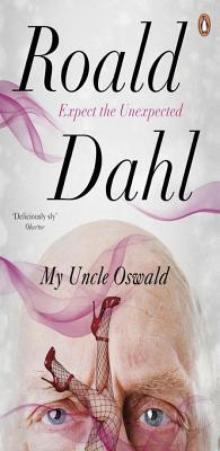 My Uncle Oswald
My Uncle Oswald The Best of Roald Dahl
The Best of Roald Dahl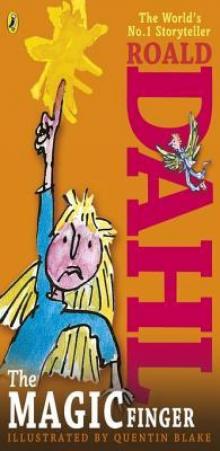 The Magic Finger
The Magic Finger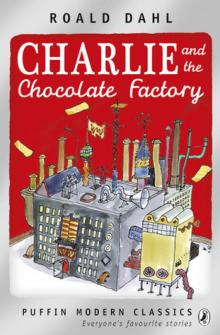 Charlie and the Chocolate Factory
Charlie and the Chocolate Factory Fantastic Mr Fox
Fantastic Mr Fox Matilda
Matilda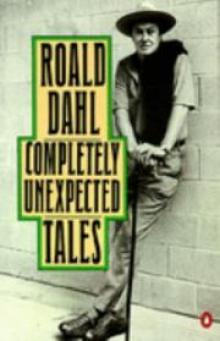 Completely Unexpected Tales: Tales of the Unexpected. More Tales of the Unexpected
Completely Unexpected Tales: Tales of the Unexpected. More Tales of the Unexpected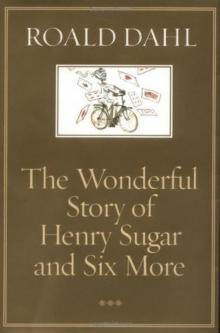 The Wonderful Story of Henry Sugar and Six More
The Wonderful Story of Henry Sugar and Six More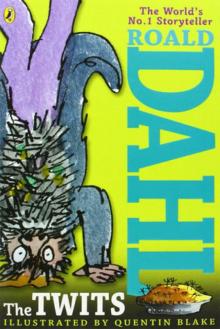 The Twits
The Twits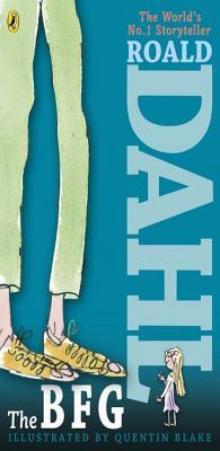 The BFG
The BFG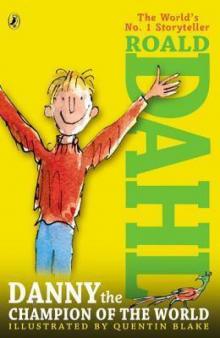 Danny the Champion of the World
Danny the Champion of the World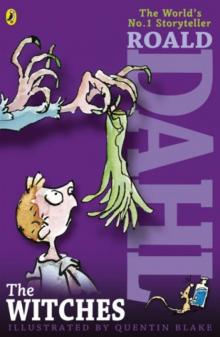 The Witches
The Witches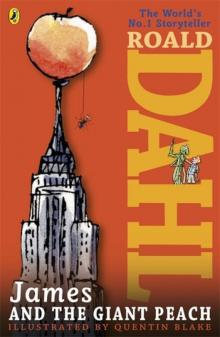 James and the Giant Peach
James and the Giant Peach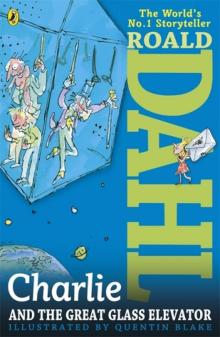 Charlie and the Great Glass Elevator
Charlie and the Great Glass Elevator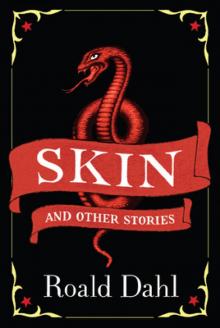 Skin and Other Stories
Skin and Other Stories Kiss Kiss
Kiss Kiss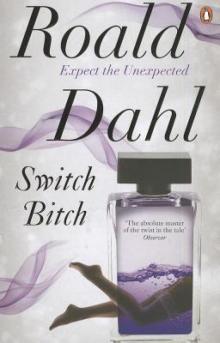 Switch Bitch
Switch Bitch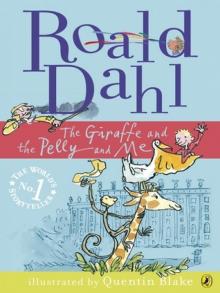 The Giraffe and the Pelly and Me
The Giraffe and the Pelly and Me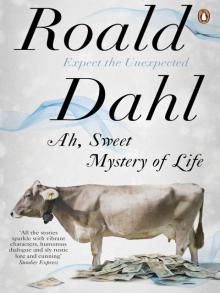 Ah, Sweet Mystery of Life
Ah, Sweet Mystery of Life Fear
Fear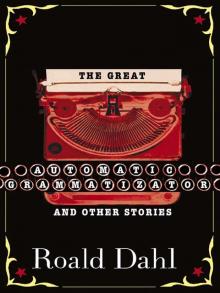 The Great Automatic Grammatizator and Other Stories
The Great Automatic Grammatizator and Other Stories Someone Like You
Someone Like You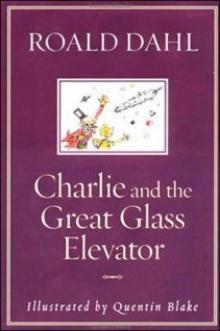 Charlie and the Great Glass Elevator c-2
Charlie and the Great Glass Elevator c-2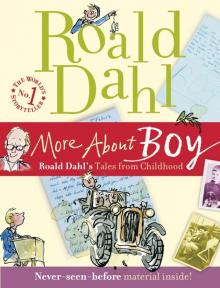 More About Boy
More About Boy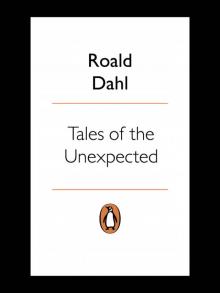 Tales of the Unexpected
Tales of the Unexpected The Umbrella Man and Other Stories
The Umbrella Man and Other Stories Dirty Beasts
Dirty Beasts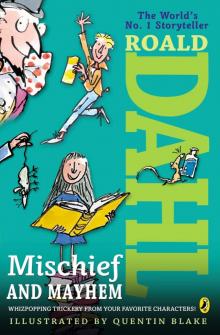 Roald Dahl's Mischief and Mayhem
Roald Dahl's Mischief and Mayhem The Collected Short Stories of Roald Dahl, Volume 1
The Collected Short Stories of Roald Dahl, Volume 1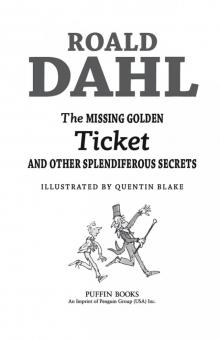 The Missing Golden Ticket and Other Splendiferous Secrets
The Missing Golden Ticket and Other Splendiferous Secrets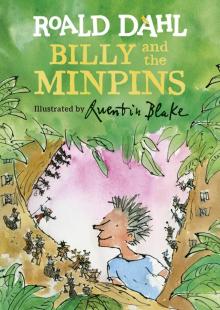 Billy and the Minpins
Billy and the Minpins Over to You
Over to You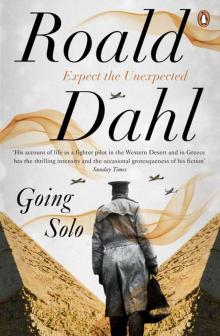 Going Solo
Going Solo Deception
Deception War
War Man from the South ee-3
Man from the South ee-3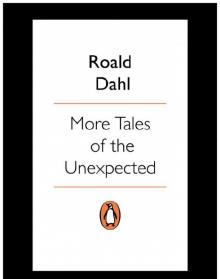 More Tales of the Unexpected
More Tales of the Unexpected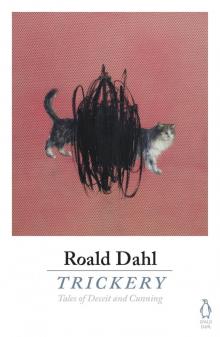 Trickery
Trickery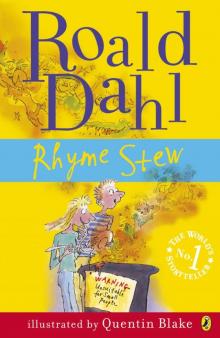 Rhyme Stew
Rhyme Stew Charlie and the Chocolate Factory (Puffin Modern Classics relaunch)
Charlie and the Chocolate Factory (Puffin Modern Classics relaunch)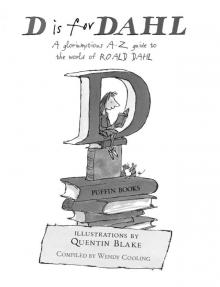 D is for Dahl
D is for Dahl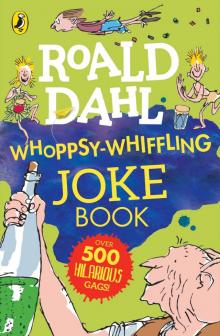 Roald Dahl Whoppsy-Whiffling Joke Book
Roald Dahl Whoppsy-Whiffling Joke Book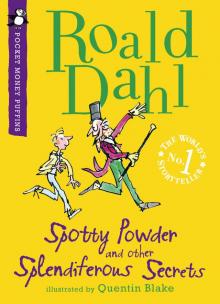 Spotty Powder and other Splendiferous Secrets
Spotty Powder and other Splendiferous Secrets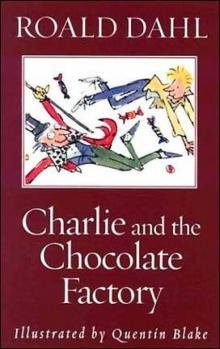 Charlie and the Chocolate Factory c-1
Charlie and the Chocolate Factory c-1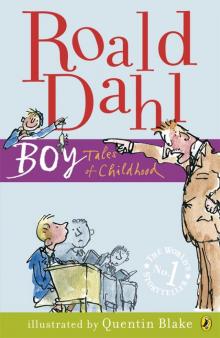 Boy
Boy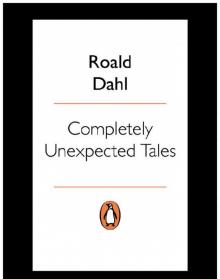 Completely Unexpected Tales
Completely Unexpected Tales Madness
Madness Innocence
Innocence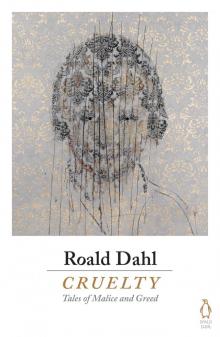 Cruelty
Cruelty George's Marvellous Medicine
George's Marvellous Medicine